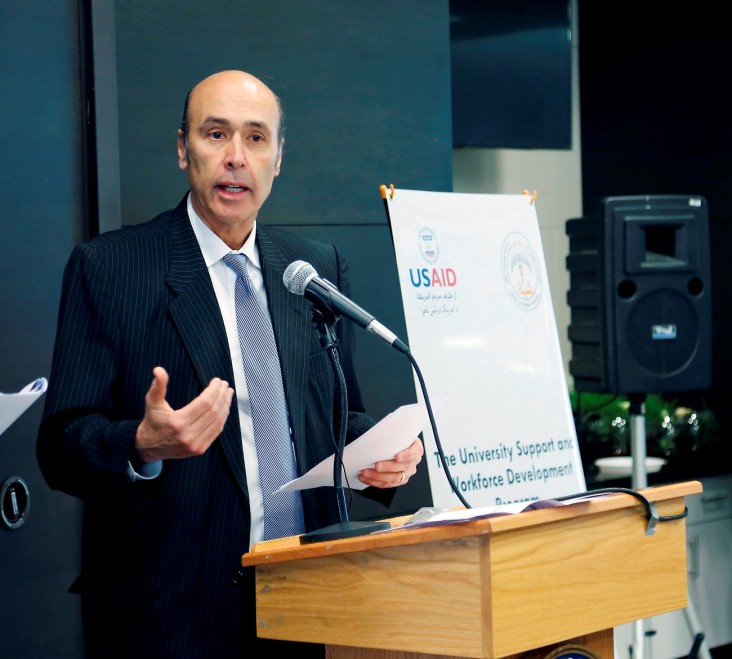
For Immediate Release
Kabul, Afghanistan – USAID, in collaboration with the University Support and Workforce Program (USWDP) and the Ministry of Higher Education (MoHE), held a one-day University Chancellor’s Forum on July 11, 2017, to focus on the role of Afghan universities in shaping the future of Afghanistan. The participants discussed the role of institutions of higher learning as centers of knowledge and academic excellence, and as safe spaces that promote truth and human development.
The forum included presentations and panel discussions on achievements, opportunities, best practices, and challenges facing institutions of higher learning here in Afghanistan.
Chancellors and Vice Chancellors from 11 universities, including: Balkh University, Herat University, Jawzjan University, Kabul Medical University, Kabul Polytechnic University, Kabul University, Kandahar University, Kunduz University, Nangarhar University, Shaheed Rabbani Education University, and Sheikh Zayed University gathered with the Deputy Ministers, United States Special Chargé d’Affaires for Afghanistan, USAID officials and USWDP representatives reviewed recent achievements and challenges at the universities and discussed strategic approaches the various institutions can take over the next year to work with USWDP on improving the quality of the higher education system. The participants also reviewed planned activities for 2018.
The United States Special Chargé d’Affaires for Afghanistan Ambassador Hugo Llorens noted the importance of bringing together the university chancellors to help reach consensus on a joint strategy.
“The group of people gathered here at this Forum has the potential to generate ideas that will revolutionize higher education in Afghanistan for decades to come. I think it is an excellent opportunity, which is only possible through your hard work, commitment, and creativity.”
Through the University Support and Workforce Program, USAID supports efforts to improve the administrative capacity of the Ministry of Education and universities and provides technical assistance to establish new market-oriented degree programs.
With almost $17 billion spent on development programs in Afghanistan since 2002, USAID provides the largest bilateral civilian assistance program to Afghanistan. USAID partners with the government and people of Afghanistan to ensure economic growth led by the country’s private sector, establish a democratic and capable state governed by the rule of law, and provide basic health and education services for all Afghans.







Comment
Make a general inquiry or suggest an improvement.